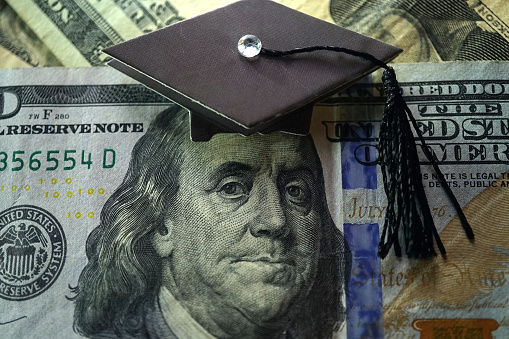Discharging student debt is difficult, but not always impossible.
Americans are carrying more student debt than ever, and it's one of the most difficult types of debt to get rid of. Accumulating interest, financial instability, and the challenges of qualifying for forgiveness programs can saddle graduates with debt for decades, preventing them from buying homes and saving for retirement.
One of the most persistent myths about bankruptcy is that it can't touch student loans at all. The reality is, while student debt is definitely difficult to get rid of via bankruptcy — and various attempts to change the bankruptcy code to make it easier have stalled in Congress — it is sometimes possible to discharge student loans even under current law. However, these are complex, difficult cases that require the help of an experienced bankruptcy attorney.
Discharging student loans requires an additional step in the bankruptcy process
Certain types of debt, like credit cards and personal loans, are basically always covered by bankruptcy. If you're able to file Chapter 7 or Chapter 13 at all, then those debts should be discharged or reorganized as appropriate.
That's not the case with student loans. To have any chance of getting your student loans covered by bankruptcy, you have to file an "adversary proceeding," called an AP in the parlance of bankruptcy law. The AP is a separate lawsuit filed in bankruptcy court to determine whether a particular debt (in this case, a student loan or loans) is dischargeable in your bankruptcy case.
Under the bankruptcy code, in order to get your student loans discharged, you need to show that paying them would present an "undue hardship." While there is no universal rule the bankruptcy courts follow to determine an undue hardship, most bankruptcy judges use the Brunner test, which includes three elements:
- Poverty: based on your financial circumstances, if you continue to make payments on the student loan, you won't be able to maintain a minimum standard of living for yourself and your dependents.
- Persistence: your financial situation is unlikely to improve (in other words, it's likely to persist) for a significant part of the repayment period.
- Good faith: you have made a good-faith effort to repay your loans before filing bankruptcy.
Depending on the bankruptcy court and the judge, you may be able to get your loan or a portion of your loan discharged. Your chances of getting a discharge may also be better if you have private loans rather than federal loans. Most federal loans qualify for income-based repayment (IBR), and a bankruptcy judge may be less likely to allow them to be discharged or reorganized in bankruptcy if you have that other option.
As always, you need to look at your whole financial situation with a lawyer on your side.
Even if you can't get your student loans discharged in bankruptcy, it may still be in your interest to file. If you have both student debt and other types of debt, like credit cards or medical debt, then getting those other debts discharged may leave you with more available income to pay off or settle your student loans.
However, it's important to get legal advice before you move forward. The interaction between student loans and bankruptcy is a highly contentious and evolving area of law, and you could inadvertently make your situation worse if you're not advised of those complexities. If you have student loans and are considering bankruptcy, contact Benjamin R. Matthews and Associates for a free case evaluation.

